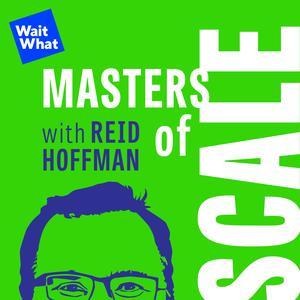
In this episode of “The Partially Examined Life Philosophy Podcast,” the hosts delve into the works of Edgar Allan Poe and discuss the recent Netflix series “The Fall of the House of Usher” by Mike Flanagan. They explore the debate surrounding Poe’s merit as a writer and poet and analyze the show’s attempt to capture the depth and meaning of Poe’s poetry. The hosts also discuss the adaptation of Poe’s works into TV series and praise Mike Flanagan’s ability to modernize and play with Poe’s stories. Throughout the episode, they touch on themes of evil, consequences, and the portrayal of characters in both Poe’s works and the TV series.
The hosts engage in a debate about Edgar Allan Poe’s merit as a writer and poet. While they agree that Poe is a great narrative writer, they express differing opinions on his poetry. Some find it rhymy and lacking in structural interest, while others compare it to emo music, emphasizing its ability to evoke deep feelings and moods. Regardless of the debate, they acknowledge Poe’s skill in storytelling, evoking emotions, and establishing mood in both his poetry and short stories. His works, such as “The Raven” and “Annabelle Lee,” engage readers with their emotive power and exploration of human existence and identity.
The hosts discuss the clever remixing of themes from Poe’s stories in the adaptation of his works into TV series. They highlight the incorporation of Easter eggs and references to Poe’s stories, rewarding viewers who are familiar with his work. Mike Flanagan’s adaptation, particularly “The Fall of the House of Usher,” is praised for its ability to modernize and play with Poe’s stories while remaining true to his essence. The hosts appreciate Flanagan’s skill in adapting Poe’s works and note his similarity to Stephen King in terms of thematic interests and pacing.
The hosts delve into the themes and analysis of the TV series “The Fall of the House of Usher.” They discuss the portrayal of characters, noting a lack of redeemable characters and a predictable plot once the framework is established. The show explores the concept of consequence-free actions and the lack of accountability, with evil portrayed as greed and hubris. The story raises questions about the nature of evil, the consequences of unrestrained actions, and the societal issues reflected in the narrative. The hosts also touch on the depiction of billionaires and the show’s indictment of society.
The hosts analyze Mike Flanagan’s approach to filmmaking and horror. They appreciate his restraint in using gore, contrasting it with other horror movies that heavily rely on explicit violence. Flanagan’s ability to create an atmosphere of dread without excessive jump scares is praised. They discuss the challenges of maintaining a gothic tone in horror storytelling, particularly in TV series like “Midnight Mass.” Flanagan’s work, including “Midnight Mass,” is recommended for its direction, pacing, acting, and consistent storytelling. The hosts compare his work to Ryan Murphy’s “American Horror Story,” highlighting Flanagan’s superior execution and focus on one idea.
In this episode of “The Partially Examined Life Philosophy Podcast,” the hosts engage in a thought-provoking discussion about Edgar Allan Poe’s writing style and the adaptation of his works into TV series. They explore the themes and analysis of “The Fall of the House of Usher” and delve into Mike Flanagan’s filmmaking approach and skill in creating atmospheric horror. The episode offers valuable insights into the enduring impact of Poe’s work, the challenges of adapting literature for the screen, and the artistry of horror storytelling. Whether you’re a fan of Poe or interested in the intersection of philosophy and popular culture, this episode provides an engaging exploration of these topics.